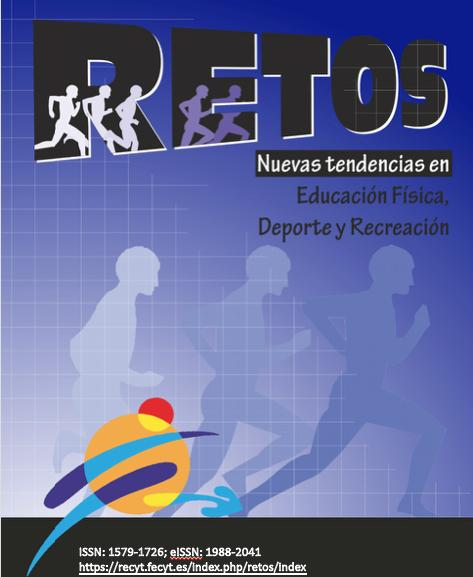Social transformation through edu-communication: strategies to promote sports and recreational activities in Milagro, Ecuador
DOI:
https://doi.org/10.47197/retos.v68.116259Keywords:
Communication, health culture, sport, edu-communication, lifestylesAbstract
Introduction: The promotion of healthy lifestyles in school settings has become a priority due to the increase in sedentary behaviors and unhealthy habits among young people. In this context, edu-communication emerges as an effective strategy to encourage active participation and foster behavioral transformation within community environments.
Objective: The objective of this research was to design and implement an edu-communication strategy aimed at promoting healthy lifestyles within a community.
Methodology: Using a quantitative approach and a quasi-experimental design, pretests and posttests were conducted to measure changes, alongside an edu-communication intervention that involved the active participation of community members. Surveys and questionnaires were used as the main data collection instruments.
Results: The results showed a significant increase in sports practice, nutritional knowledge, and socio-emotional skills among participants.
Discussion: The discussion highlights how edu-communication, by integrating cultural, emotional, and community aspects, manages to transform not only individual behaviors but also fosters a sense of belonging and collective responsibility—key elements for the sustainability of these changes.
Conclusion: Edu-communication constitutes a valuable tool for promoting sustainable and inclusive changes within the school environment, contributing to the strengthening of a culture of holistic well-being and community participation.
References
Astudillo, J. (2024). Programa edu-comunicacional en el desarrollo de habilidades para la vida en los estudiantes de la Unidad Educativa Particular “Liceo Nuevo Mundo periodo 2022-2023. [Tesis de Pregrado, Escuela Superior Técnica de Chimborazo] http://dspace.espoch.edu.ec/handle/123456789/22186
Bravo, O., & Zambrano, P. (2018). Turismo comunitario desde la perspectiva del desarrollo local: un desafío para la Comuna 23 de Noviembre, Ecuador. Revista Espacios, 39(7). https://www.researchgate.net/publication/328030975_Turismo_comunitario_desde_la_perspecti-va_del_desarrollo_local_un_desafio_para_la_Comuna_23_de_Noviembre_Ecuador_Community_tourism_from_the_local_development_perspective_a_challenge_for_the_Comuna_23_d
Corral, M. (2025). Educomunicación y competencia digital. Acciones formativas a través de Instagram en la Universidad. RIDU. Revista d’Innovació Docent Universitària, 17, 49-65. https://www.researchgate.net/publication/388523282_Educomunicacion_y_competencia_digital_Acciones_formativas_a_traves_de_Instagram_en_la_Universidad
Creswell, J., & Creswell, J. (2020). Research design: Qualitative, quantitative, and mixed methods ap-proaches (5th ed.). SAGE Publications.
Dulcey, F. (2024). Recreación y deporte como estrategia para mejorar la convivencia escolar. Revista Latinoamericana de Ciencias Sociales y Humanidades, 5(4). DOI: https://doi.org/10.56712/latam.v5i4.2520
Estévez, F., & Estévez, A. (2021). Comunicación efectiva en salud: evaluación de una experiencia do-cente en estudiantes de medicina de Cuenca, Ecuador. Revista de Bioética y Derecho, 52, 85 – 104. https://www.researchgate.net/publication/352927459_Comunicacion_efectiva_en_salud_evaluacion_de_una_experiencia_docente_en_estudiantes_de_medicina_de_Cuenca_Ecuador
Hernández, R., Mendoza, C., & Baptista, P. (2014). Metodología de la investigación: Las rutas cuantita-tiva, cualitativa y mixta (7.ª ed.). McGraw-Hill.
Ortiz, M., López, N., & González, J. (2021). Educomunicación, webradio y educación no formal en un contexto Erasmus+: la experiencia de Europa on air. RIED. Revista Iberoamericana de Educa-ción a Distancia, 25(1), 163-181. https://www.redalyc.org/journal/3314/331469022011/html/
López, C., Loor, D., López, R., Hernández, A., & León, C. (2023). Edu-comunicación como herramienta de apoyo a la cultura ambiental en niños de edad escolar. Polo del Conocimiento, 8(4), 1445 – 1461. https://dialnet.unirioja.es/servlet/articulo?codigo=9152190
Marca, S., Cedillo, J., & Rodríguez, J. (2024). Estilos de vida saludables en estudiantes de educación secundaria de una institución pública. Ciencia Latina Revista Científica Multidisciplinar, 8(4). DOI: https://doi.org/10.37811/cl_rcm.v8i4.12323
Rivera Merino, D. A. (2024). Estrategia de comunicación para la promoción de actividades deportivas y recreativas en la comunidad. Universidad Y Sociedad, 16(S2), 103–108. https://rus.ucf.edu.cu/index.php/rus/article/view/4813
Robalino, C., Ureña, D., Bravo, L., & Ávalos, M. (2024). Sostenibilidad Ambiental: Enfoques comunicati-vos innovadores para la salud comunitaria en la era global. Revista Habanera de Ciencias Mé-dicas, 23. https://revhabanera.sld.cu/index.php/rhab/article/view/5782/3380
Sánchez, L., & del Pino, M (2008). Una mirada a la participación comunitaria en el proceso de contralo-ría social. Paradígma, 29(2), 35-53. https://ve.scielo.org/scielo.php?script=sci_arttext&pid=S1011-22512008000200003
Tabango, J. (2023). Educomunicación y Educación para la Ciudadanía. Revista ComHumanitas, 14(2). https://www.researchgate.net/publication/377248439_Educomunicacion_y_Educacion_para_la_Ciudadania
Vargas, A., Viejó, L., Sánchez, Z., & Gómez, L. (2024). La edu-comunicación como estrategia en la recu-peración de los saberes ancestrales y populares. Revista Universidad y Sociedad, 16(5), 297-302. http://scielo.sld.cu/scielo.php?script=sci_arttext&pid=S2218-36202024000500297&lng=es&tlng=es.
Viejó, I., Cabezas, V., Pincay, I., Donoso, H., & Mendoza, J. (2022). Análisis de la comunicación comuni-taria, procesos y elementos psicológicos: caso ciudadela Las Piñas de la Ciudad Milagro – Ecuador. Sapienza, 3(1). https://www.researchgate.net/publication/358896809_Analisis_de_la_comunicacion_comunitaria_procesos_y_elementos_psicologicos_caso_ciudadela_Las_Pinas_de_la_Ciudad_Milagro_-_Ecuador
Yacelga, P. (2024). Educomunicación como parte del sistema educativo ecuatoriano. Educateconcien-cia, 32(3). http://educateconciencia.com/index.php/revistaeducate/article/view/230
Downloads
Published
How to Cite
Issue
Section
License
Copyright (c) 2025 Ana Herrera Flores, Jefferson Mendoza-Carrera, Juan Carvajal-Romero, Viviana Pinos-Medrano

This work is licensed under a Creative Commons Attribution-NonCommercial-NoDerivatives 4.0 International License.
Authors who publish with this journal agree to the following terms:
- Authors retain copyright and ensure the magazine the right to be the first publication of the work as licensed under a Creative Commons Attribution License that allows others to share the work with an acknowledgment of authorship of the work and the initial publication in this magazine.
- Authors can establish separate additional agreements for non-exclusive distribution of the version of the work published in the journal (eg, to an institutional repository or publish it in a book), with an acknowledgment of its initial publication in this journal.
- Is allowed and authors are encouraged to disseminate their work electronically (eg, in institutional repositories or on their own website) prior to and during the submission process, as it can lead to productive exchanges, as well as to a subpoena more Early and more of published work (See The Effect of Open Access) (in English).
This journal provides immediate open access to its content (BOAI, http://legacy.earlham.edu/~peters/fos/boaifaq.htm#openaccess) on the principle that making research freely available to the public supports a greater global exchange of knowledge. The authors may download the papers from the journal website, or will be provided with the PDF version of the article via e-mail.


